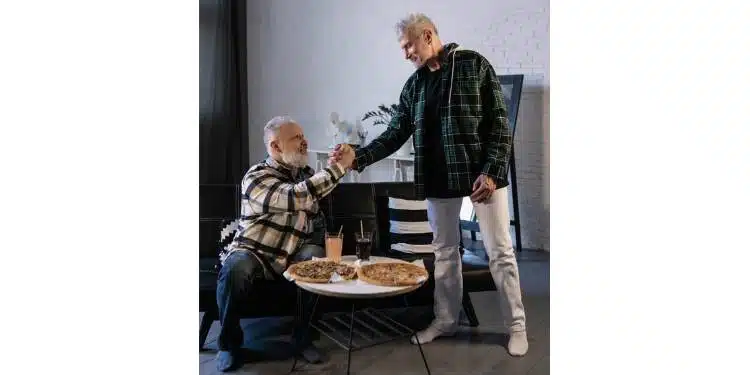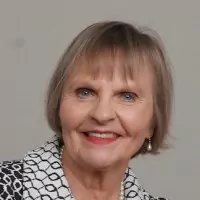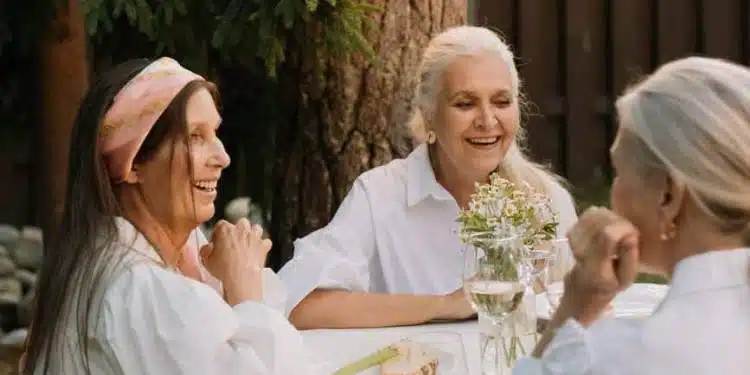by Carol Marak
Family of choice is the best support team for those aging alone without family support
It feels like yesterday since I helped my parents with their elder care needs while working a full-time job. I experienced first-hand the effects of growing older by observing relatives evolve through the latter stages. However, they had offspring, three loving daughters, to depend on. Today, I’m the one occasionally needing help, but unlike my parents, I don’t have adult children or a partner to call. I am a solo ager. How did this happen so quickly? And more importantly, where do I turn for help?
Caring for a loved one has the effect of an awakening for most family members. It’s when people understand the difficulties of growing older as they watch relatives deal with chronic conditions, while others confront dementia and Alzheimer’s disease. It is heart wrenching to observe the decline for both the caregiver and the elder.
After looking out for mom and dad, I realized as a solo ager there is no one to do the things for me I did for my parents. I had to get on the stick and come up with a plan. It took seven years to set my future on a smooth path.
I focused on my health, engaged with other people, relocated to a walkable urban area, found nearby support and nurtured friendships. Now, as I approach my seventies, I find the strong relationships I cultivated hugely impact my physical health and mental well-being. Those closest to me are my family of choice and ensure that I am not alone.
The American Public Health Association says healthy relationships lead to better lives. It’s more important than ever to intentionally create and nourish relationships with others because our social networks naturally begins to diminish as we age. Increased isolation results from a variety of reasons; it may be we no longer seeing coworkers in the office every day or perhaps our children grew up and left the nest.

Why solo agers aging alone without family need a community
Those aging alone face a variety of challenges, but the top and most worrisome is,
“How do I compensate for not having adult children and other family members to look out for me, because counting on good friends is not what I want to do?”
I hear this concern often when I work with seniors and family caregivers. It’s a common dilemma, and one about which I anguished after taking care of my parents.
In our world today, adults increasingly age alone with multiple chronic diseases and are geographically distant from family and long time friends. The risks of aging alone and with little to no support puts us at risk for physical and social isolation, threatening both our safety and independence. With the high prevalence of solo individuals and the clear risks associated, it is crucial that older people plan for the years ahead, create support and connections, and learn about available resources.
It’s essential for older adults who did not plan well, and/or those like me who live without a spouse or children, to view the future realistically. Each of us must take steps to create a community of family and support. You may feel comfortable and secure with your life today, but unless you plan ahead, an emergency may drastically change your situation, forcing strangers to make decisions on your behalf. And that would not be optimal.
Ways solo agers can compensate for no family
For the individuals aging alone, I suggest:
- Design a plan and to address the issues such as who will care for you when in need–learn about the resources available to you.
- Decide what housing arrangements fit your lifestyle and budget carefully, but also choose the one that enables you to age with dignity.
- Think how to remain mobile in the community if you cannot drive–think public transportation, Uber, Lyft, and other share rides.
- Learn to build a team of friends and connections for support–the kind that care about you.
- Create a life worth living to diminish isolation and loneliness–find passion and purpose.
- Select a person to put in charge of medical and health, estate planning and financial matters–solo agers need licensed, reliable professionals to fill these shoes.
- Find a trustworthy friend, companion you can depend on–the ones who have your back if you have a bad day.

How to make friends
I chose to live in a high-rise where people are available 24/7. I enjoy the sense of security, safety, and connection. If I want privacy, I stay in my condo. When I want company, I go downstairs to the lobby where I can strike up a conversation with other residents. It gives me the best of both worlds. Privacy and connection.
If you live in the suburbs, get to know your neighbors and start to connect with them regularly. It takes time to create relationships and to build trust but don’t give up. Remain consistent with the effort. It took two years for me to make close relationships where I live.
Other ways to make new friends locally
Here are some ideas that worked well for me.
- Facebook groups in Dallas (join a group or start one geared to your passion)
- Check out local Meetups (or create one of your own.) I belong to a writing and walking Meetup
- Extension classes
- Local hobby classes
- The Apple store (I learned to create videos using Mac)
- Senior Centers – I attended dance and yoga classes where I met new friends
- Local universities, community colleges and organizations that offer educational opportunities for older adults
- Volunteer – a great opportunity to help out locally while providing a way to create new social networks, roles and outlets. Volunteer opportunities provide a way to make positive changes and to meet people from all walks of life
The bottom line
Just to be clear, a community of support does not mean expecting a neighbor or friend to be the go-to person for your care needs such as a ride to the doctor’s office, shopping or meal preparation.
A community of support is your reliable circle of neighbors and friends who simply have your back. The person that makes you feel, “Ah, I’m not alone, there is someone who cares.”
I hope you create an abundance of connections and social support wherever you live. Close relationships make our world a better place.
Another article from Carol Marak: Feeling Invisible as a Single?Find Blessings in Growing Older Alone
ABOUT THE AUTHOR

Carol Marak is a “Solo Advisor” and soon to be published author of SOLO and SMART. She launched the Solo and Smart YouTube channel offering achievable tips when growing older alone. Carol founded the Elder Orphan Facebook Group and the Dallas Aging Alone Facebook Group in 2016. She also writes for prestigious publications such as NextAvenue.com and New York Times Magazine. Learn about her work at CarolMarak.com.
originally posted 4/9/2022
updated 4/2/2023










